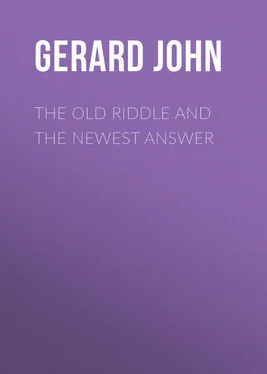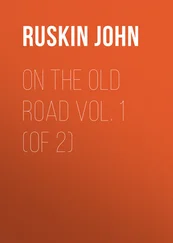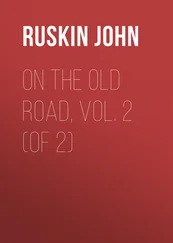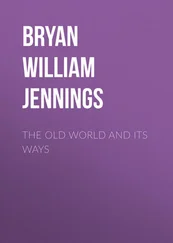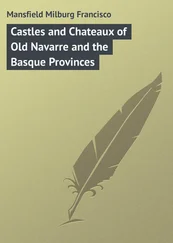John Gerard - The Old Riddle and the Newest Answer
Здесь есть возможность читать онлайн «John Gerard - The Old Riddle and the Newest Answer» — ознакомительный отрывок электронной книги совершенно бесплатно, а после прочтения отрывка купить полную версию. В некоторых случаях можно слушать аудио, скачать через торрент в формате fb2 и присутствует краткое содержание. Жанр: foreign_religion, foreign_antique, foreign_prose, на английском языке. Описание произведения, (предисловие) а так же отзывы посетителей доступны на портале библиотеки ЛибКат.
- Название:The Old Riddle and the Newest Answer
- Автор:
- Жанр:
- Год:неизвестен
- ISBN:нет данных
- Рейтинг книги:4 / 5. Голосов: 1
-
Избранное:Добавить в избранное
- Отзывы:
-
Ваша оценка:
- 80
- 1
- 2
- 3
- 4
- 5
The Old Riddle and the Newest Answer: краткое содержание, описание и аннотация
Предлагаем к чтению аннотацию, описание, краткое содержание или предисловие (зависит от того, что написал сам автор книги «The Old Riddle and the Newest Answer»). Если вы не нашли необходимую информацию о книге — напишите в комментариях, мы постараемся отыскать её.
The Old Riddle and the Newest Answer — читать онлайн ознакомительный отрывок
Ниже представлен текст книги, разбитый по страницам. Система сохранения места последней прочитанной страницы, позволяет с удобством читать онлайн бесплатно книгу «The Old Riddle and the Newest Answer», без необходимости каждый раз заново искать на чём Вы остановились. Поставьте закладку, и сможете в любой момент перейти на страницу, на которой закончили чтение.
Интервал:
Закладка:
John Gerard
The Old Riddle and the Newest Answer
PREFACE
THE enemies of Science are not the philistines alone – if any still remain – who would muzzle or stifle her. More numerous and dangerous are those – professedly of her own household – who ascribe to her pretensions of which she herself knows nothing, and strive to make her responsible for a philosophy entirely beyond her scope. With this object efforts are assiduously made to popularize the idea that nothing in heaven or earth is beyond her ken, and that she has rendered all such beliefs impossible as alone can satisfy the deeper cravings of humanity. At the same time the very brilliance of her achievements is apt to dazzle our eyes, blinding them to the extremely narrow limits of the field in which she can operate, and making us rush to the conclusion that she has solved the riddle which from the beginning of time Nature has offered to every thinking mind, – or at least that what her search-light cannot illumine must for ever remain unknowable.
How far such assumptions are rational, it is the object of the present enquiry to examine by means of the evidence furnished by Science herself in her own regard.
I have to thank Mr. W. E. Darwin for permission to use the illustration of feathers of the Argus Pheasant from his illustrious father's Descent of Man , and for the loan of blocks for the purpose. Through the courtesy of Messrs. Macmillan I am allowed to copy a portion of the plate in the late Professor Huxley's Lectures on Evolution , illustrating his pedigree of the Horse. If I forbear to mention others who have kindly supplied me with information, it is only lest it might be supposed that they are anywise responsible for the use I have made of it. The design on the cover of the present volume I owe to my friend Mr. Paul Woodroffe.
J. G.March 10, 1904.
PREFACE TO THE SECOND EDITION
IN this edition, which has been thoroughly revised throughout, a few corrections have had to be made, especially in the Index, and in one or two instances alterations or additions have appeared advisable for the sake of clearness or accuracy of expression. Nothing has, however, as yet been brought to the author's notice which affects any substantial point in what he has written.
July 28, 1904.
PREFACE TO THE THIRD EDITION
THIS edition has again been thoroughly revised, and some new matter appended which bears on various points raised in the original volume, especially the establishment of the important group of the Cycado-filices , as affecting the succession of plant life on the earth, and recent evidence concerning the pedigree of the horse.
December 21, 1906.
I
TO BEGIN AT THE BEGINNING
THAT the world as we know it had a beginning is a truth which there is no denying. Not only have philosophers always argued that it must be so: the researches of physical science assure us that it has been so in fact. Astronomy, says Professor Huxley, 1 1 Collected Essays , i. 35.
"leads us to contemplate phenomena the very nature of which demonstrates that they must have had a beginning." The hypothesis that phenomena of Nature similar to those exhibited by the present world have always existed, the same authority assures us, 2 2 Lectures on Evolution , Cheap Edition, p. 16.
"is absolutely incompatible with such evidence as we have, which is of so plain and so simple a character that it is impossible in any way to escape from the conclusions which it forces upon us." This conclusion, physicists tell us, is inevitable when we study the laws by which the operations of Nature are governed, and as Professor Balfour Stewart writes, 3 3 Conservation of Energy , § 210, p. 153.
we thus become "absolutely certain" that these operations cannot have existed for ever, and that a time will come when they must cease. In like manner, a recent and competent witness to the conclusions of contemporary Science, lays down, 4 4 F. W. Hutton, F.R.S., The Lesson of Evolution (1902), pp. 9-11.
as one of the truths which her latest discoveries compel us to accept, that the world is not eternal, that the earth is cooling from a state of heat rendering life impossible, to one of physical exhaustion equally fatal to it. Accordingly "Life must have had a beginning and must come to an end," – and our whole Solar System (he adds) must similarly have had a commencement, at a period not infinitely remote.
But, if the world had a beginning, what was there before it began? Something there must have been, and something which had the power of producing it. Had there ever been nothing, there could never have been anything, for, Ex nihilo nihil fit . That nothing should turn into something is an idea which the mind refuses to entertain. Nor is the case any better even if we suppose that matter had no beginning, that it has existed for ever as we know it now, and that at first there was nothing else. For if so, whence have all these things arisen which, according to all observation and experiment, matter cannot produce, as, organic life, sensitive life, consciousness, reason, moral goodness? Had matter been always what it now is, and had there been no source beyond matter whence the power of producing all these things could be derived, they could never have been produced at all, or else they would have come into being without a cause. It would be like a milestone growing into an apple-tree, or a mountain spontaneously giving birth to a mouse.
We are therefore compelled by common-sense to ask when we consider Nature, What is the force or power at the back of her, which first set her going, and whence she draws the capability of performing the operations which we find her performing every day; that force or power which must be the ultimate origin of everything that is in the world? This is the great fundamental problem which the student of Nature has to face, and beside it all others fade into insignificance. It is with this that we are now engaged. We have to ask how our reason bids us answer it, and the first question which arises naturally is, What light is thrown on the subject by modern Science, of whose achievements we are all so justly proud?
II
REASON AND SCIENCE
IN studying a question such as this, we must commence by being determined, on the one hand to accept nothing as true but what our reason warrants us in believing, and on the other hand to follow the guidance of reason as far as, rightly used, it will lead us. The principle formulated 5 5 Nineteenth Century , February, 1889. p. 173.
by Professor Huxley, as the foundation-stone of what he termed "Agnosticism," is that which must needs be adopted, and as a matter of fact has ever been adopted, by rational men.
Positively – in matters of the intellect follow your reason as far as it will take you, without regard to any other consideration. And negatively – in matters of the intellect do not pretend that conclusions are certain which are not demonstrated or demonstrable.
But to justify the confidence which we thus repose in it we must obviously be careful to use our reason aright, and not to attribute to it any conclusions which it does not really sanction. It is this right use of reason that is specially claimed for modern "Science," 6 6 This term is now applied almost exclusively to physical science , or that whose province is the observation of phenomena and inferences directly deducible from them. To avoid confusion, this sense of the word "Science" will be here adopted: it is nevertheless objectionable inasmuch as it implies that – as Professor Huxley following Hume would have it – sound knowledge is restricted, outside the field of mathematics, to "experimental reasoning concerning matter of fact and existence.
Интервал:
Закладка:
Похожие книги на «The Old Riddle and the Newest Answer»
Представляем Вашему вниманию похожие книги на «The Old Riddle and the Newest Answer» списком для выбора. Мы отобрали схожую по названию и смыслу литературу в надежде предоставить читателям больше вариантов отыскать новые, интересные, ещё непрочитанные произведения.
Обсуждение, отзывы о книге «The Old Riddle and the Newest Answer» и просто собственные мнения читателей. Оставьте ваши комментарии, напишите, что Вы думаете о произведении, его смысле или главных героях. Укажите что конкретно понравилось, а что нет, и почему Вы так считаете.
